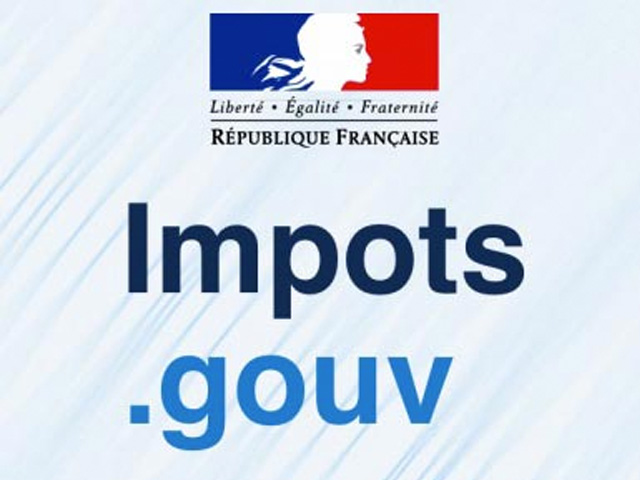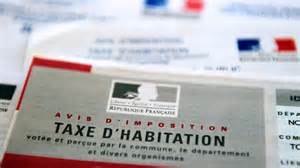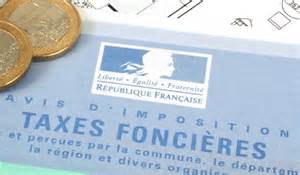Knowing when to pay the different taxes in France can be puzzling…. let’s take a closer look
If there is one subject that causes everyone to roll their eyes and cringe, it’s the word ‘tax’. But the main frustration (apart from paying it of course!) is understanding it. When do we need to pay it? What’s it used for? How much will it cost? So at the start of this New Year lets take a closer look at them, so you can prepare and avoid those late payment charges!
TAXE HABITATION – tenants tax
This is a resident tax paid on local property, similar to the council tax in the UK. It’s used by your local commune to provide local services and council facilities i.e. schools, crèches and paid by owners and tenants.
Who is liable?
If you rent a property in France you would be liable to pay this tax. Who pays is determined by where you live on 1st January of the calendar year. Therefore if you leave the property on the 2nd January, you would be liable for the tax d’habitation for the whole of the year even if you don’t live in the property. You would not however pay the tax in the new property you just moved in to, logic!
There are some exonerations and exemptions but that would depend on various criteria, such as age (certain exonerations for retirees), disability & income. Exoneration’s are only applicable to principal residency homes and the reductions are usually given automatically. In order to pay this tax, the property must be classed as habitable i.e. have sufficient furniture, electricity and water etc. If you don’t live their all year round, you would still be liable for this tax. If you think you may have missed out on some reductions, pop into your local tax office to discuss in more detail. They are actually very helpful.
NOTE: If you are renting a property (but are not the owner) you are liable to pay the part of the ‘ordures ménagers’ i.e. bin collection part of the Tax Foncière. This is often built into your monthly charges.
How is it calculated?
This is always the big question and quite frankly it’s quite complicated. It is calculated according to the ‘la valeur locative cadastrale or VLC’ – Cadastral Rental Value of the property and its annexes. This value is ‘supposed’ to represent the annual rental income you could expect from the property. For main residences, certain rebates are applied to this value, which gives the ‘valeur locative nette’ or Net Rental Value.
The amount of your tax billed is the Net Rental Value multiplied by the tax rates voted by your local authorities which vary greatly from commune to commune. Before buying a property it would be wise to ask your estate agent or current owner this cost. Note: On the same bill, you will pay your ‘contribution à l’audivisuel public’ – TV License. You can opt out of this if you have no TV by ticking the box on the first page of your annual tax declaration.
When is it paid?
You will receive your tax d’habitation bill in October and this tax is due to be paid on the 15th November for primary residents. For secondary homes this would be for 15th December. The date is written on your tax bill. If you pay online, these date are pushed out, see payment section below.
TAXE FONCIERE – Owners Tax
TAXE foncière is a tax on property, both residential and commercial properties. The amount depends on whether there are buildings. There can therefore be two parts: la ‘taxe foncière sur les propriétés bâties’ which is a tax on buildings i.e. permanent buildings like houses, apartments which would include the dependencies like garages & pools, gardens. Then there is the ‘taxe foncière sur les propriétés non-bâties’ which is a tax on land without permanently fixed buildings i.e. caravans, mobile homes & agricultural buildings like barns). Like the taxe d’habitation described above, it is used to pay for local services.
Who is liable?
In the same way as the taxe d’habitation, this tax is paid by whoever owns the property as of January 1st of the year the bill arrives. The most common exceptions are where the occupants are not the owners but have a usufruit (long-term – sometimes lifetime – right to use the home or rent it out) or they have a bail emphytéotique, a very long lease usually for 99 years. Also for new builds, certain towns have exonerations for 2 years; however you must declare your new build within 90 days after the end of works in order to be able to be eligible. Check with your constructor for this. You would still need to pay the bin collecting costs i.e. ‘ordures ménagers’.
How is it calculated?
For the building tax it is calculated according to the VLC of the property as described above under tax d’habitation. This however is then divided in half to take account of maintenance expenses (insurance, repair etc). Then the local authorities apply their tax rate and hey presto you have your tax foncière bill.
For the tax on land without permanent buildings ie caravans, mobile homes, it is calculated in the same way, only there is only a 20% reduction for costs rather than the 50% reduction. This is justified my lower maintenance costs.
When is it paid and how?
You will receive your bill in September and this tax is due to be paid on the 15th October. Online payments allow you to gain time for the debit of the amount from your account (10 days later). You can also pay monthly in 10 installments from January to October
CFE – Contribution Fonciere des Entreprises (professional tax)
The CFE is a small tax paid by businesses to local authorities (Chambre de Metiers / Chambre de Commerce / Town hall). It used to be called ‘Taxe Professionnelle’ and the cost can vary a lot.
You will receive a CFE form to complete during your first year of business which will help the tax office determine your professional tax.
The amount of your tax varies according to the size of your business (number employees, building, heavy machinery / plant etc.) and the town or village your business is registered in. A small business with no employees in a village may pay 300 euros, while the same activity in a big town like Paris might pay 800 euros.
All new businesses benefit from CFE exoneration for their first year in business. However if you set up your business in December 2015, your first year for payment will be 2016.! Best to start your business at the beginning of the year to benefit from a full year of exoneration!!
How to pay?
It is due by 15th December each year and is paid online at www.gouv.fr. You will need to go under the section ‘Professionnel’ and create an account. This is a two-step process whereby the tax office will send you your personal access codes so be sure to leave some time to do this. If you have any doubts, call the Tax office helpline on 0810 467 687.
HOW CAN I PAY MY TAXES?
TIP or check
Your tax bill comes with the TIP, which you can sign, date and send back. Don’t forget to send along your bank RIB if it’s your first time for paying. You can also decide to pay by check, in which case just write a check out and send back in the envelope provided. I would advise to drop this into the tax office or send it via registered letter, so there are no ‘we didn’t receive it’ problems J
ONLINE OPTIONS
You can pay on the website www.gouv.fr. Just go to the section ‘Je paye directement en ligne’. If this is your first time, don’t leave it until the last minute as the website has lots of information and can be complicated if French isn’t your first language.
DIRECT DEBIT a l’échéance – one payment via direct debit
A very good way of paying your tax bills if you don’t want to go monthly. You can pay on the website www.gouv.fr. This will allow you to pay in one go your tax by direct debit. You can opt into this payment up to the last day of the month preceding the date of the tax i.e. if due on 15th November, you would need to go online by 31st October. The payment would come out of your account 10 days after the date on your tax bill. Go to the section ‘Je choisis le prélèvement à l’échéance’.
MONTHLY – 10 monthly installments
You can put in place your income tax, tax d’habitation and tax foncière on a monthly direct debit. The monthly payments for all your taxes are spread over 10 direct debits from January to October, the 15th of each month. So ideally, you sign up for this in before the 15th December of the previous to get maximum benefit from the 10 installments. However if you do this later, you will just ‘catch up’ the missed payments i.e. pay two or three in one go. That leaves November and December in case there is an increase of your tax contributions.
If the thought of dealing with the website is too much, then call 0810 012 010. They can help but your payments in place or call Tracy Leonetti on 06 59 04 01 51 to ensure everything is in order for this year.




